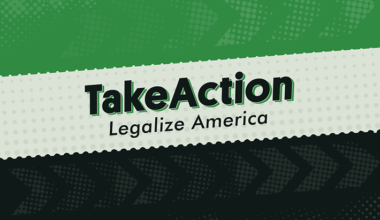Caregivers in Hawaii who provide medical marijuana access to qualified patients will be protected under an executive order signed by the governor.
The executive order that went into effect Wednesday is intended to act as a bridge after the existing caregiver program expired on Dec. 31.
According to a news release, Gov. Josh Green signed the executive order to prevent “negative health outcomes” associated with the caregiver program’s expiration.
“We have medical cannabis statutes to provide patients the relief each desperately needs as they navigate very serious health issues,” Green, a physician, said in a statement.
“We must protect the patients and their caregivers when the caregivers cultivate cannabis for a patient in a manner that fits squarely within the spirit of the medical-cannabis law.”
Hawaii caregiver program
Patients registered in Hawaii’s medical marijuana program must specify which cannabis cultivator they are working with.
As the deadline to extend the caregiver program neared without legislative action, patients worried they would not have access to their preferred source of treatment, prompting some to remove their primary caregiver from state records, according to Hawaii News Now.
Meanwhile, some caregivers stopped supplying patients, fearing the practice was about to become illegal.
In announcing the emergency order, Green urged state lawmakers “to ensure that primary caregivers can continue to provide services to those patients who are in the greatest need.”
One caregiver per patient
As of Nov. 30, more than 2,600 caregivers were registered through Hawaii’s Medical Cannabis Registry Program, which reported that 30,035 patients had valid medical marijuana registrations.
In most cases, primary caregivers are authorized to cultivate up to 10 cannabis plants for a single qualifying patient and have 4 ounces of usable marijuana at a time.
The executive order states that “a primary caregiver acting in accordance with the law in effect prior to January 1, 2025, is not committing a significant violation.”
The order directs the Department of Health and Office of Medical Cannabis Control and Regulation to instead focus its resources to combat:
- Cannabis diversion from the state-regulated MMJ program.
- Primary caregivers acting as commercial operators.
- Primary caregivers cultivating cannabis for more than one patient.
- Cannabis cultivation at a facility used by more than five qualifying patients.
2024 MJBiz Factbook – now available!
Exclusive industry data and analysis to help you make informed business decisions and avoid costly missteps. All the facts, none of the hype.
Featured inside:
- Financial forecasts + capital investment trends
- 200+ pages and 49 charts highlighting key data figures and sales trends
- State-by-state guide to regulations, taxes & market opportunities
- Monthly and quarterly updates, with new data & insights
- And more!
Medical Disclaimer:
The information provided in these blog posts is intended for general informational and educational purposes only. It is not a substitute for professional medical advice, diagnosis, or treatment. Always seek the advice of your physician or other qualified healthcare provider with any questions you may have regarding a medical condition. The use of any information provided in these blog posts is solely at your own risk. The authors and the website do not recommend or endorse any specific products, treatments, or procedures mentioned. Reliance on any information in these blog posts is solely at your own discretion.






